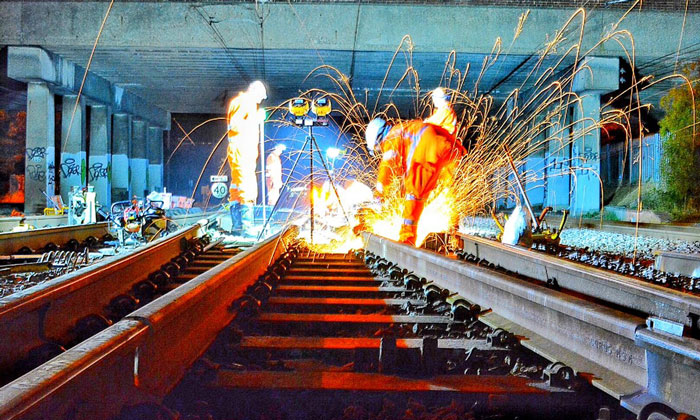Network Rail opens up for competition under new reforms
Posted: 1 August 2017 | Global Railway Review | No comments yet
Network Rail has announced sweeping new reforms that will enable companies to become heavily involved in delivering railway investment projects.


Network Rail is investing almost £130m in Britain’s railways every week, with over 15,000 live projects on its books to deliver improvements to the railways for the 4.5m people who use it every day. The reforms unveiled by chief executive, Mark Carne, represent a raft of opportunities for other companies to directly work on Britain’s railway projects and to compete for a slice of this huge market and to potentially deliver further improvements for passengers that otherwise might not happen.
Mark Carne, chief executive, Network Rail, said: “A growing railway drives the economy, jobs and housing and by welcoming open competition into the core of our business we will increase the pace of innovation, creativity and efficiency and could deliver even more improvements to our railway and for the people that use and rely on it every day.
“I am determined to create an environment where innovative third party companies can compete for and directly deliver railway projects. These reforms mark the next stage of Network Rail’s transformation having already decentralised into nine devolved individual businesses.”
Some of the reforms announced include:
- Publishing a regular pipeline of third party project opportunities
- Creating a swathe of third party project champions across the country who will work side-by-side with delivery bodies, investors and funders to ensure their projects are successful
- Creating a clear service level agreement for third parties so they have clarity and reassurance regarding Network Rail’s legal obligations
- Introducing flexibility to railway standards. Safety, of course, will always be central to our ethos but where we can encourage innovation and reduce costs without compromising our solid safety record, we will explore how we can be more flexible
- Launching a rewards scheme where money saved from introducing a new idea or innovation is shared between Network Rail and the company or individual
These reforms will also unlock new sources of funding because potential investors will have choices over who delivers projects for them. This will reduce the burden on central government and taxpayers and create new opportunities for passengers and the communities that depend on the railway.
Darren Caplan, chief executive of the Railway Industry Association, said: “We all know that the industry has to change – these changes mark a welcome, positive, approach from Network Rail which has previously resisted such radical steps.”
Mr Carne continued: “I am also determined to find ways for the private sector to directly invest in railway projects. As a government owned business, this has some challenges, but by unlocking private finance we can potentially deliver railway improvements that would otherwise not be possible.”
One of the first examples of railway projects being privately financed in an innovative way is Network Rail’s new two-year deal with Resonate – the British signalling and train control specialists.
The deal sees Resonate introduce its new, digital traffic management system into the signalling and control systems for the main lines out of London Paddington that could reduce delays by up to 15%.
The deal sees the supplier financing and bearing the risk of introducing the new technology but it will reap rewards from the savings made in reducing delays. Back in December 2016, Network Rail commissioned a review – the Hansford review – into how to encourage competition into railway projects and attract more private sector involvement to fund and finance Britain’s railway projects. Network Rail has now published both the review, and also its swathe of reforms aimed at breaking down the actual and perceived barriers identified by Hansford.







